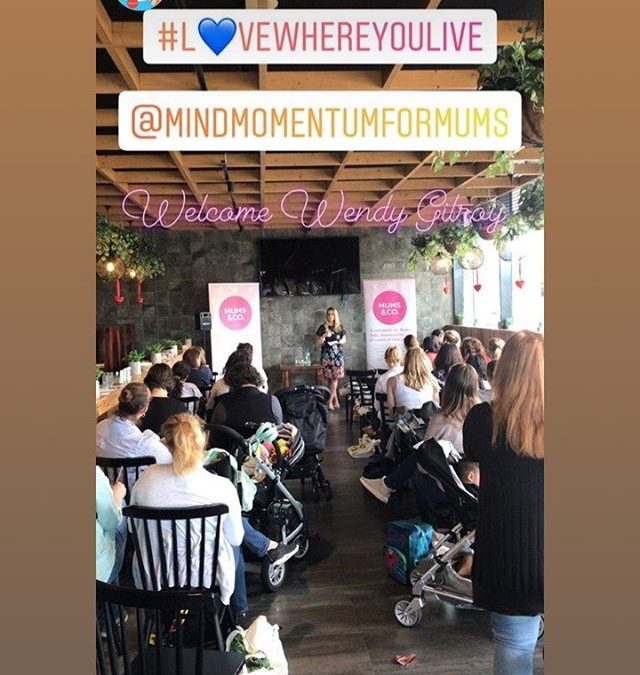Many Australian Mums are Struggling to Return to Work – Here’s Why

If you’re a mum who’s cringed (or is currently cringing) at the thought of going back to work after you’ve been at home with your little one (or two), you’re most definitely not alone.
Whether you’re a full-time working mum or a part-time working mum, chances are you’re struggling in some way with being the best mum you can be, while also being seen as productive, successful and ‘on top of everything’ at work.
You might be trying to maintain that fire in your belly – the one that propelled your career to where you landed before taking leave and transforming into a mother – Ta-da! (if only your transition to motherhood was that quick and seamless!).
You’re mindful of the need to show up and be ‘ready to go’ as soon as you arrive back at work… to look bright-eyed and ready to contribute, engage, lead, inspire, problem-solve, create or manage people issues around you… but, hang-on…. hello sleep deprivation, leaking breasts, mum-brain, foggy thinking, a wardrobe that doesn’t quite fit as it used to, the need to work flexible hours at times, the (heavy) weight of mum-guilt and the ever-changing nature of your post-baby hormonal imbalance.
People, this stuff is REAL.
How does a mum combine all of this, and still feel like she’s doing a great job at the end of every day?
I’m not so sure that she does.
From my experience holding space for mums in counselling & therapy sessions, I hear a lot of stress and guilt playing on their minds, day after day, week after week.
The Gidget Foundation shares that “1 in 5 new mothers will experience perinatal depression and anxiety” and that “50% of all new parents will experience adjustment disorders” (www.gidgetfoundation.org.au).
Bearing in mind that these are reported cases only, these statistics don’t include the large number of Australian mums who are seeking private support through counselling or therapy with practitioners such as myself, or who have not seen a GP, Psychiatrist or Psychologist for assessment and diagnosis, because they’re either afraid to, they can’t access the right service nearby, or they don’t believe they’re suffering from a mental illness.
Working mothers often feel as though they’re doing a mediocre job at home, and in raising their children – because they’re not ‘present’ enough when they are at home (due to stress, anxiety & worrying, the need to keep working, etc.), they often have to miss school events, and sometimes come home later than they hope to. Yet, despite doing their absolute best at work, working mums often feel that somehow they’re falling short there too – that they’re not doing or not giving enough.
How do working mums wrestle with their internal dialogue, the questions around their purpose, motivation, and changing priorities?
After all, isn’t motherhood the most important job in the world?
Who’s checking in to make sure mothers are feeling emotionally and mentally well?
Mothers, in general, hold a greater share of the caring responsibilities for their children, even though they’re also working. The mental load of motherhood is ginormous. It’s all the background stuff aside from paid employment – the planning, organising, grocery shopping, housework, meal prep, keeping on top of birthday parties, visits to family and friends, participating in school or community events. The list never ends.
The reality for some working mums is there may not be many other mothers around them at their workplace.
Your boss may not be a mum, or your teammates may not be mums, so their ability to understand and empathise with your new life will be varied. Some will be amazing (count your lucky stars!). Others may resemble a corporate psychopath with what appears to be zero care factor for your emotional wellbeing and your primary responsibilities to care for a baby – Oh, you’ve got a kid, good for you. Now, get on with it.
Sound familiar, anyone?
This can be tough for some mums. Really, really tough.
And I haven’t even mentioned the incredible mums who have a child with a chronic health condition or special needs… that’s a whole other conversation.
So let’s take a moment to pause, and really think about what many modern-day mums are managing in their day.
They are amazing.
They are strong, resilient, creative and passionate.
They are multitaskers (and many of them are doing it all on a crappy night’s sleep).
They are putting more pressure on themselves than you may ever realise.
And, often times, they aren’t talking about much of this stuff at all – because they fear being seen as weak, vulnerable, unproductive, inefficient, problematic, or even as a failure.
It’s time to shift our dialogue with working mums.
It’s time to show more support and understanding of the real nature of their responsibilities, without denying their capabilities at work.
It’s time to support their wellness at work, and encourage them to flourish in a new way.
Let’s work together to help these wonderful women shine.
How can Australian workplaces show a little more support for mothers?
I dare say, that if workplaces changed their ways with mums returning to work – they might even receive a whole lot more than they’d bargained for.
Wendy

Disclaimer: This is for information purposes only. If you have any concerns about your physical or mental health, please consult your healthcare practitioner for medical advice.






